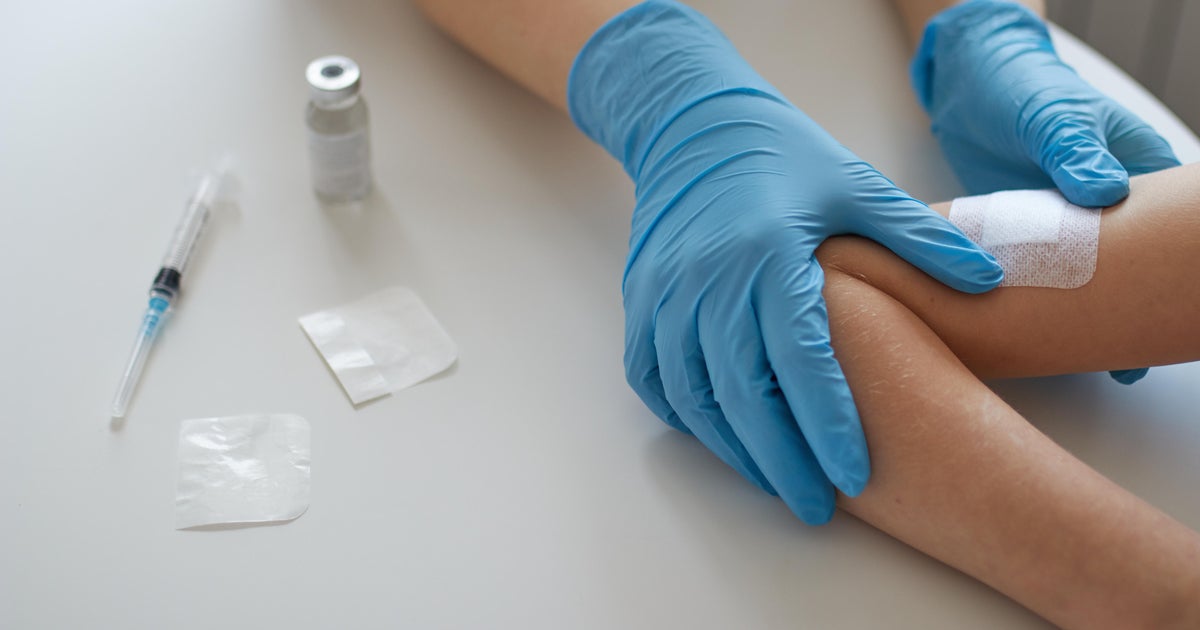Want a medical exemption for the COVID-19 vaccine? Good luck with that.
As the Biden administration urges workers across the U.S. to get their shots against COVID-19, many Americans are asking their employers to exempt them from vaccination requirements on medical grounds.
Yet while federal law requires companies to accommodate workers with qualifying medical conditions that interfere with vaccination (as well as those with strong religious beliefs), employers have considerable discretion in who gets a pass. So what kind of health condition or disability might excuse an individual from getting jabbed?
Getting an employer to grant workers a medical exemption became a lot harder after the Food and Drug Administration in August fully approved the Pfizer-BioNTech vaccine, known as Comirnaty. A two-shot vaccine from Moderna and Johnson & Johnson's single-dose vaccine have also been deemed safe and effective for emergency use in U.S. adults.
Except for a few specific allergies, there are no known medical conditions that make vaccination unsafe, experts say. According to the Centers for Disease Control and Prevention, the only people who shouldn't get vaccinated are those who had a severe allergic reaction, called anaphylaxis, immediately after a first vaccine dose or to a component of the COVID-19 vaccine.
Although an individual may be allergic to a given ingredient in one vaccine that is not present in another, allergies to vaccine components are extremely uncommon, according to disease experts.
"The only real exemption I can imagine is severe allergic reaction mainly in the Pfizer and Moderna mRNA vaccines, but they are very, very rare — like one in a million," Dr. Peter Chin-Hong, an infectious disease physician at the University of California San Francisco, told CBS MoneyWatch. Individuals are observed for 15 minutes post jab to monitor for these sorts of allergies.
An allergic reaction to the vaccine also must be severe to qualify for a medical exemption, experts said.
"Someone would have to argue that they had a severe allergic reaction to a previous dose of the vaccine or to a vaccine component — not just a rash or some muscle soreness, but having difficulty breathing, swelling in their throat or something of that nature," said Dr. David Dowdy, an infectious disease epidemiologist at Johns Hopkins University School of Medicine.
Alternatively, they could demonstrate a diagnosis of an allergy to a known component of the vaccine, Dowdy noted. "But the number of people who truly have a medical exemption to these vaccines is extremely small," he said.
Sorry: Peanut allergies don't apply
Specifically, an allergy must be clearly documented and specific to a given vaccine's component for it to constitute a valid exemption from vaccination.
"The only contraindication to vaccination is a severe allergic reaction to a vaccine component," said John Grabenstein, director for scientific communications at the Immunization Action Coalition, which works to educate the public on vaccine safety and efficacy and to increase immunization rates.
Documented allergies to components not present in COVID-19 vaccines are irrelevant, Grabenstein added. "If you have a peanut allergy, it's not relevant, because there is no peanut in the vaccine," he explained.
Recipients of monoclonal antibodies, which help COVID-19 patients make antibodies, are advised to defer vaccination for 90 days. For them, vaccination would not be unsafe, just temporarily useless, according to Chin-Hong.
"It's not about it being dangerous medically, it's just about it being ineffective," he said.
What about pregnancy and fertility?
Workers seeking a medical exemption because they fear that COVID-19 vaccines harm a woman's pregnancy or fertility won't pass muster with most employers, Chin-Hung said. "These are myths that have been debunked very conclusively by large studies," he said.
To be sure, employers may use their own discretion in evaluating workers' requests for exemption to vaccine mandates.
"From the perspective of how many people genuinely meet CDC criteria for exemption from this vaccine, it is a very small number. But whether that means employers want to strictly enforce to that number is a different question," Dowdy said.
President Joe Biden's vaccine mandate for federal employees, contractors and millions of other workers, announced earlier this month, provides a weekly testing option in lieu of vaccination as an out for workers at companies with more than 100 employees who don't wish to get the shot — even if it would be medically safe for them to roll up their sleeves.
The reasonable accommodation tied to Biden's rule also streamlines the process of employers granting exemptions to particular workers.
"For an employee who says, 'My doctor says I have an allergy to a vaccine ingredient,' there is already a weekly negative COVID test as option for employees working for large business, so that's a reasonable accommodation to reach," said Roger Feicht, a labor and employment attorney at Florida law firm Gunster.
Still, the threshold is high for employers to grant workers accommodations given that no known medical conditions interfere with vaccination.
"Someone can't say, 'I have headaches, I'm not going to get the vaccine,'" Feicht added.
Tough task for employers
Exemptions from vaccine requirements for certain workers have long been guaranteed by law. Today, however, more companies are being tasked with interpreting such requests.
"It's no different from a process standpoint than it was pre-pandemic. The only real difference is most companies are starting to see a greater number of accommodation requests on the disability side with vaccine policies," said Michael Schmidt, a labor attorney at Cozen O'Connor in New York.
Employees seeking accommodations should be prepared to document a valid allergy with a note from their health care provider. They would then discuss with their employer if a reasonable accommodation can be made.
An employer can ask a worker for additional information about their claim of being medically ineligible for the vaccine. But requests for medical information must be narrowly tailored to focus on the particular condition or case at hand.
"Just because someone requests a medical accommodation, that does not give employers carte blanche to ask about every condition in an unlimited way," Schmidt said. "But it may not be so obvious what the connection is and you [the employer] may be entitled to more information."
Schmidt said he has engaged with companies that have granted employees accommodations to vaccine mandates on medical grounds. Chin-Hong of UCSF, on the other hand, isn't aware of any successful challenges to the vaccine mandate within his own institution.
Though few exemptions are likely to be granted, it's clear that each request must be assessed individually.
"From an employer's standpoint, the takeaway is you have got to treat every case individually and separately," Schmidt said. "You cannot have blanket rules and procedures. You need to take everyone on an individualized basis."





